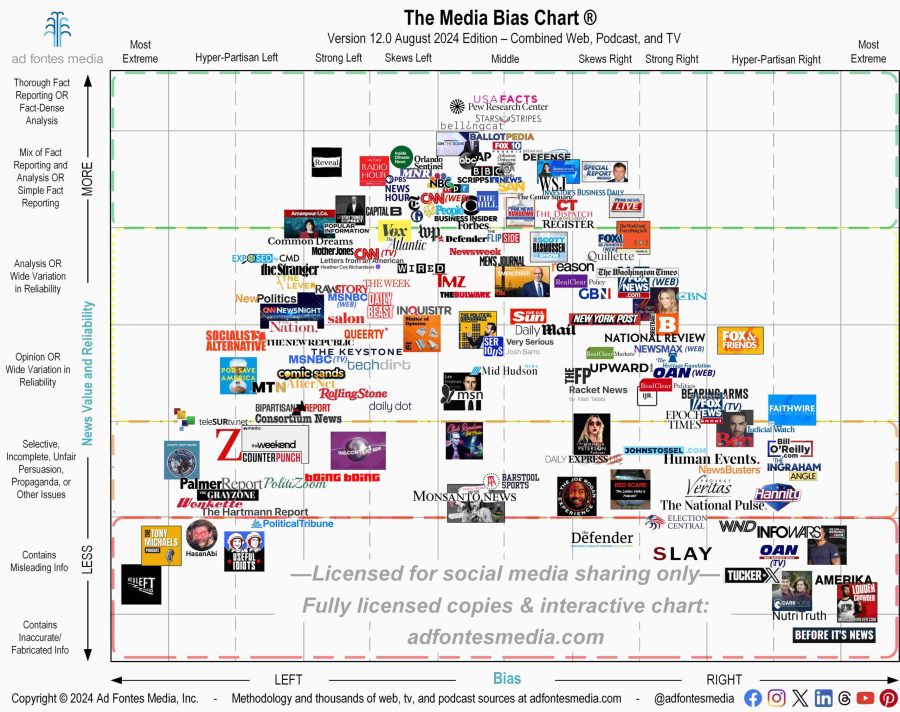Noam Chomsky and Edward S. HermanŌĆÖs Manufacturing Consent (1988) argues that Western media essentially stages democracy by utilizing five filters: ownership, advertising, sourcing, flak, and ideology. The Al Jazeera video, Is mass media still ŌĆśmanufacturing consentŌĆÖ in the internet age?, explores the concept of ŌĆśmanufactured consentŌĆÖ and how it persists in a current context. While I donŌĆÖt disagree with the theory, I do consider it a rather pessimistic view which underestimates the power of public opinion and modern media.
I think that the general public is more media literate than we are lead to believe, even if we are unaware of the power that provides us. People might not be able to put specific theories or terms to the multitude of ways media imprints on their lives without taking a class such as this one, but there is an inherent knowledge that media consumption doesnŌĆÖt exist in a vacuum. Even without completely understanding the implications, people notice and discuss algorithms, shadow bans, advertisements, etc. Younger generations have been encountering media bias charts and taught to identify reliable sources from very early on in their schooling. Generally speaking, we know what to look out for.
This alone makes the average individual harder to blindly manipulate than Chomsky and Herman presumed. Buying into one ideology or another, or consuming media from one particular conglomerate is more of an intentional choice than it was in 1988, which gives back some power over our consent. At the core of modern media and the internet, we have access to every opinion, every statistic, every source ŌĆō whether or not we pay attention is our own decision. In this day and age, the only individuals that the media can wholly manipulate (to the point of ŌĆśmanufactured consentŌĆÖ) are those who allow themselves to be manipulated.
I also think that complicity and censorship are usually called out on a more massive scale than in previous generations, because while the mass media may be in the governmentŌĆÖs pocket, itŌĆÖs increasingly difficult to manipulate a public with so much control over consuming and creating content. Journalists, for example, can take their investigations to the internet, to mediums they control, if companies would censor their findings. Audiences successfully rallied around Jimmy Kimmel when ABC caved to TrumpŌĆÖs bullying. Media phenomena like the mass exoduses from Twitter after Elon MuskŌĆÖs takeover and the 2024 presidential election further prove that the general public is more aware of their consent than Chomsky and Herman theorized.
Democracy is fragile, as weŌĆÖve seen recently in the United States in particular, but I donŌĆÖt think itŌĆÖs staged the way Manufacturing Consent suggests. People understand that they shape their personal media landscape, even if they are unaware of the bigger picture effects. While it may be unconscious for many, I believe that the public does hold the power over their consent and will continue to for as long as media is so widely accessible, contrary to Chomsky and HermanŌĆÖs writing.
IMG: Ad Fontes Media


It was awesome! It connects ChomskyŌĆÖs old ŌĆ£manufacturing consentŌĆØ theory to how we actually interact with media these days back in the day, folks always framed the public as passive recipients of information, but this piece makes the case that we can now actively engage with media, and that angle feels really fresh.
Plus, it doesnŌĆÖt just spout empty theory it uses real examples like the Jimmy Kimmel incident and Twitter users ditching the platform en masse. It feels super grounded, not flimsy at all. WhatŌĆÖs especially on point is the bit about ŌĆ£tacit media literacyŌĆØ we never took formal classes on judging information, but when weŌĆÖre scrolling our phones, we unconsciously pick and choose content and suss out whatŌĆÖs reliable. ThatŌĆÖs so relatable to daily life! We all do this when weŌĆÖre online, so that observation is totally spot-on.
It’s so interesting! When we look at “Creating Consent” in the current online era, it makes us feel even more relevant to reality. You’re right that although people may not fully understand the theories, they are quite sensitive to things like algorithms, advertisements, and biases. I completely agree with this point. Nowadays, people really aren’t so easily deceived. The examples of journalists bypassing institutions to conduct investigations and users leaving platforms by voting with their feet, as well as the fact that the public doesn’t simply passively receive information but instead fights back and makes choices, all of these can be seen. After reading it all, you’re essentially saying: In today’s world, consent is not created artificially; it is negotiated and reached through continuous discussions by everyone. I think this point is well-expressed.